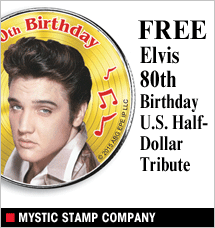
If you love to shop or if you are looking for an agreeable way to make some money, you may have noticed ads for “mystery shoppers.” They appear in newspapers, show up in your e-mail inbox, and pop up on websites you may visit. In case you are wondering, mystery shopping is a legitimate job. I myself have been on both sides of mystery shopping and found it interesting. But like so many areas of life, thieves have also turned it into a scam. The Federal Trade Commission wants you to know the difference between the genuine and the fake when it comes to mystery shopping opportunities.
The Real
Market research companies hire people to pose as ordinary customers and shop or inquire about services or dine at restaurants, in order to ascertain the quality of the customer service. Mystery shoppers are generally paid a flat fee and, depending on the assignment, may have to make small purchases out of their own pockets and be reimbursed.
I was once asked by a marketing firm to call a preschool and pose as a mother looking for daycare. I was given a range of days and times to make the call, questions to ask, and a form to report on the customer service I’d gotten. It all took less than half an hour. The pay was (and usually is) low, about $9. But again, it was half an hour of work.
More typically, a mystery shop assignment involves a physical visit to a business, during which you ask certain questions like you would as a real customer. It’s fairly quick and easy, but as a shopper, you cannot make notes while you are on a face-to-face assignment. You will need to note the clerk’s name and basic description and be able to record answers to questions after you walk away.
Many years ago, when I was a journeyman clerk for a major grocery chain, I waited on a mystery shopper sent by the company to check out our service. Of course I had no idea I was being tested until my boss got a glowing report on my work.
Again, the pay is low but the work is easy and requires only basic instructions and no experience. The FTC wants you to know this is at best, a part-time activity, not a full-time income. So if you are looking for a little extra money, this might be for you. The larger the area you live in, the more opportunities there are likely to be.
The FTC recommends contacting the Mystery Shopping Providers Association (MSPA) at mysteryshop.org. You can search a database of real assignments and learn how to apply for them. The MSPA offers certification programs for a fee, but you don't need "certification" to look – or apply – for assignments in its database.
The Fake
First, the FTC notes that market research companies do not go around pasting ads everywhere, and they certainly don’t send unsolicited e-mail. Scams will try to lure you in by promising you can earn a good living, eating in upscale restaurants, taking luxury trips as part of the job, getting reimbursed for buying nice items you get to keep. Again, real mystery shoppers generally can expect a part-time income. Assignments are unlikely to lead to you living the high life on someone else’s dime, so disregard these ads.
The FTC offers these points to watch for:
- Personal information. Scam ads will direct you to register on their website, and may ask for information like your Social Security number or bank account.
- Certification or other training required, at your expense. They may tell you that before you get assignments you must pay for certification or other training. The FTC states that the certification is usually worthless, and does not provide any guarantee of work. Real market research companies may offer you the opportunity for certification and may ask a fee, but this is not required to get work.
- Directories. Scammers try to sell directories of companies that use mystery shoppers. According to the FTC, these directories are available for free online.
- No reimbursement. The FTC has received complaints from people who purchased items as part of a mystery shopping scams were promised reimbursements that never materialized.
- Wire transfers. Another version of the mystery shopping scam is one in which the shoppers are “hired,” then told the first assignment is to report on a money transfer company, like Moneygram or Western Union. The shopper is then mailed a check, told to deposit it in his or her personal account, then withdraw the money and execute a wire transfer of cash to a third party. Thieves rely on the fact that it can take weeks to determine when a fake check has been passed. Meanwhile, the people who deposit these checks in their personal accounts are responsible to repay the bank the money involved.
Recaps and More Tips from the FTC:
- It costs nothing to become a legitimate mystery shopper. Do not pay fees or purchase directories.
- While the FTC has had many complaints about trouble with reimbursements connected with mystery shopping, this is generally not a problem with real marketing firms. If you follow the guidelines and save your receipts, there should be no trouble getting reimbursed.
- Before you sign up with a company, check the Internet for reviews or complaints. The Better Business Bureau may be able to help. Log onto BBB.org, or call your local office.
- If you think you have encountered a mystery shopping scam, file a complaint with your local consumer protection agency, the Better Business Bureau, your state Attorney General, or the
FTC.- Never agree to wire money as part of an assignment, or deposit a check on behalf of someone you don’t know.
Do You Rely on Online Reviews?
If you are like most of us, before you buy a shirt or a pair of pants or a book online, you take a minute to see what other people thought. Are the shirts true to size? Did the pants wear well? Did the book disappoint … or thrill? Retailers know this anonymous word of mouth may be just the ticket to make you hit “buy.”
Unfortunately, in the interest of increasing sales, many have taken to creating or paying for fake reviews. By one estimation, 1 out of 3 customer reviews posted on the Internet are fake. Some authors have become prolific at writing reviews of their own books, and some may even write negative reviews trashing their competitors’ books. Merchandisers may also write fake reviews, pay someone to write them, or offer a discount for a positive review.
The New York Times revealed in late August that the use of fake reviews is everywhere. There are even people who make a living at it. The NYT told of reviewer-for-hire, Todd Jason Rutherford. One author (self-publisher John Locke) paid Rutherford $6,000 for reviews on his books, which Rutherford posted on a site called GettingBookReviews.
If you rely on reviews, watch out for the ones that are so glowing that there is no flaw or fault to mention. Beware five star reviews that give no details that a real customer would mention (how late the pool stays open, where the ice machines are relative to the rooms, the lighting on the stairs at night, the coffee at the continental breakfast, etc.). There’s a good chance these are not genuine. When real people are impressed enough or angry enough to write a review they usually been pushed to that point by services or products that were amazingly good, or shockingly poor.
Teresa Ambord is a former accountant and Enrolled Agent with the IRS. Now she writes full time from her home, mostly for business, and about family when the inspiration strikes.




























































